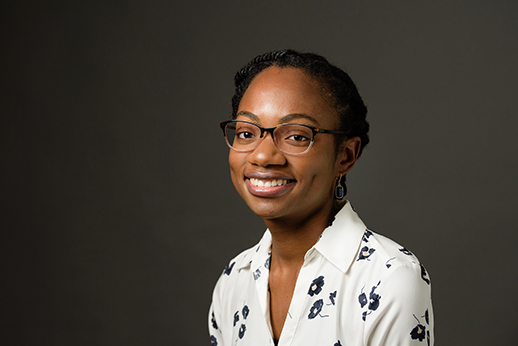Selasi Dankwa Selected as Next Generation Faculty Symposium Speaker
 Jan. 5, 2024 – Congratulations to Dr. Selasi Dankwa of Seattle Children’s Research Institute’s Center for Global Infectious Disease Research (CGIDR), a nationally selected speaker at the recent Stanford.Berkeley.UCSF Next Generation Faculty Symposium. The prestigious event is designed to highlight the work of exceptional early-career scientists in the broad field of quantitative biological and biomedical sciences, with a track record of research productivity and demonstrated contributions to enhancing diversity, equity and inclusion in STEM.
Jan. 5, 2024 – Congratulations to Dr. Selasi Dankwa of Seattle Children’s Research Institute’s Center for Global Infectious Disease Research (CGIDR), a nationally selected speaker at the recent Stanford.Berkeley.UCSF Next Generation Faculty Symposium. The prestigious event is designed to highlight the work of exceptional early-career scientists in the broad field of quantitative biological and biomedical sciences, with a track record of research productivity and demonstrated contributions to enhancing diversity, equity and inclusion in STEM.
Dankwa was one of 14 invited speakers. Her talk, “Kinase signaling in endothelial cells: Towards a molecular understanding of blood-brain barrier dysfunction and repair in cerebral malaria,” was livestreamed to hundreds of viewers.
A research scientist, Dankwa conducts joint studies in CGIDR’s Smith and Kaushansky labs using systems biology approaches to understand why the blood-brain barrier fails in cerebral malaria. Cerebral malaria is a serious complication of malaria infection where malaria parasites accumulate in small blood vessels in the brain and can cause breakdown of the blood-brain barrier, which can kill patients, especially young children.
“I study endothelial cells, which form the walls of our blood vessels. These blood vessel walls can be damaged from excessive inflammation and become leaky, leading to organ damage. My research is directed at understanding how damage to the blood-brain barrier occurs during cerebral malaria and how to repair it,” said Dankwa, who completed her doctorate at Harvard University in 2015.
She also researches malaria parasites to understand which components of the parasites cause damage to the blood-brain barrier.
“Ultimately, I want to determine how we can use drugs that target the relevant proteins to repair damage to the blood-brain barrier,” said Dankwa, who plans to transition to a faculty position in fall 2024.
“This is a huge honor,” said CGIDR Co-Director Dr. Lisa Frenkel. “It points out Selasi’s highly significant work to address a vexing obstacle that accounts for more than half of a million deaths each year, mostly of children, from malaria.”
Dankwa said she was appreciative of her selection. “Opportunities like this symposium are a very helpful reminder to me that I am part of a much larger group of scientists across diverse disciplines that are all working hard to deepen our understanding of human health and disease,” she said. “I was inspired by the other speakers to continue to pursue impactful research.
“I think it’s also helpful to scientists in training to see us and our research highlighted. It provides opportunities for trainees to connect with other scientists from underrepresented groups, or simply to give them ideas about research directions. I am grateful to be at Seattle Children’s, where I get to work and collaborate with fantastic scientists who enrich my research,” she said.
— Colleen Steelquist
